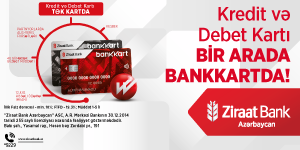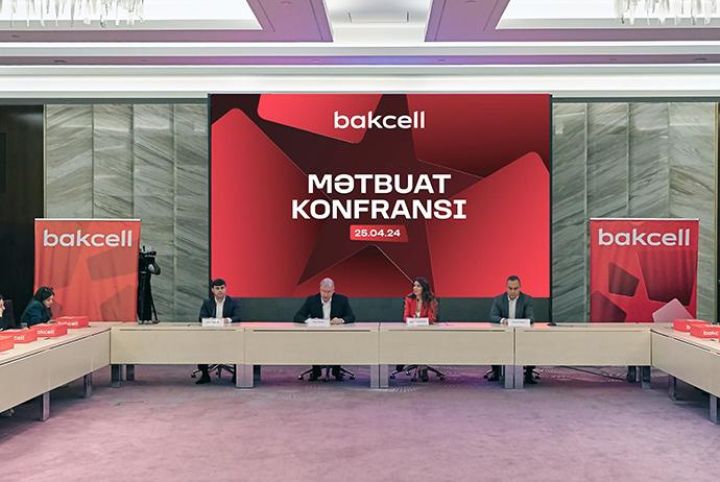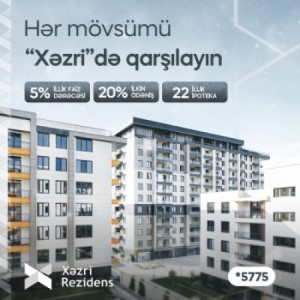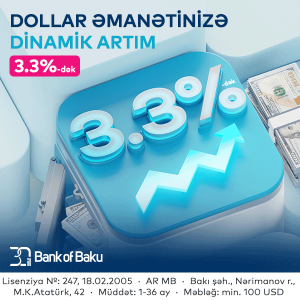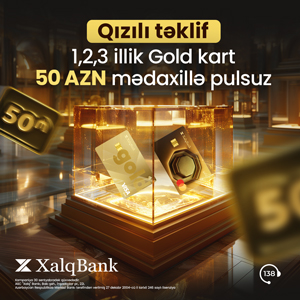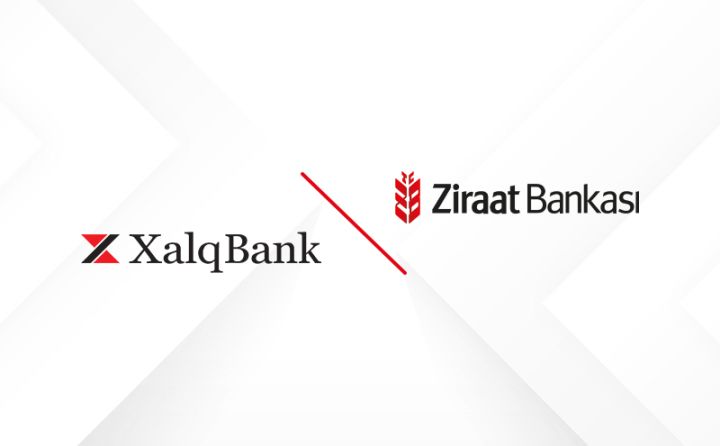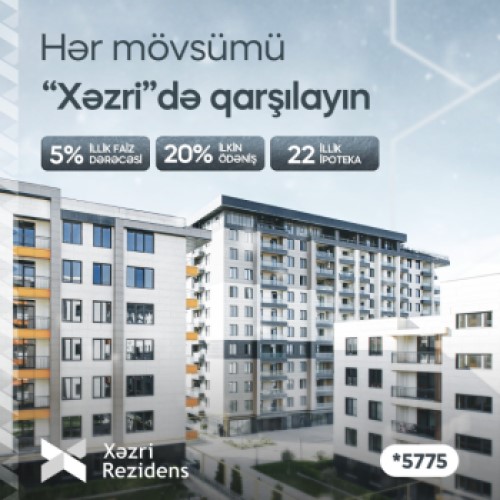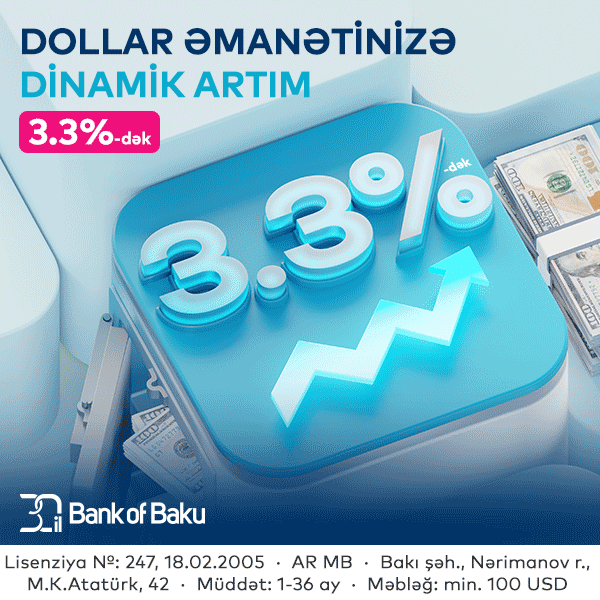Kapital Bankın proqnozu "neqativ”dən “stabil”ə qaldırıldı
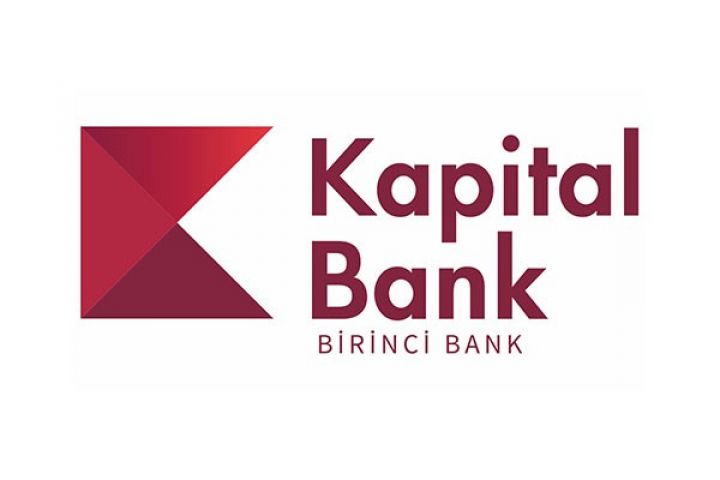
“Standard&Poors” beynəlxalq reytinq agentliyi “Kapital Bank”ın kredit reytinqinə yenidən baxıb.
"Marja" xəbər verir ki, bu barədə agentliyin yaydığı məlumatda bildirilir.
Bildirilir ki, bankın kredit reytinqi “BB-“ səviyyəsindədir. Reytinq üzrə proqnoz “neqativ” dən “stabil” yüksəldilib.
Agentlik qeyd edib, Kapital Bankın reytinqi üzrə proqnozun yüksəldilməsi Azərbaycanın bank sektoru üçün risklərin azalmasını və Azərbaycanın suveren reytinqinin proqnozunun qaldırılmasını əks etdirir.
"Stabil" proqnoz reytiniqin yüksəldiləcəyi ehtimalını gücləndirir.
KAPİTALI ARTIRILACAQ
Qeyd edilir ki, Kapital Bankın aktivlərinin keyfiyyəti sistemin orta vəziyyəti ilə müqayisədə daha stabil və yaxşıdır. Bank adekvat kapital mövqeyini və likvidliyini qoruyub saxlayacaq.
Bildirilir ki, növbəti iki il ərzində bankın kredit portfeli müəyyən artım nümayiş etdirəcək və bu artım illik 5%-7%-dən çox olmayacaq. “Düşünürük ki, 2018-ci ilin birinci yarısında banka səhmdarlar tərəfindən 40 milyon manat həcmindəki kapital inyeksiyasının həyata keçirilməsi bankın kapitallaşmasına dəstək olacaq,” – deyə agentliyin mütəxəssisləri bildirib.
Məlumatda o da qeyd olunub ki, “Kapital Bank”ın aktivlərinin keyfiyyəti yaxşılaşıb: “2017-ci ilin sentyabrın 30-na olan göstəriciyə əsasən, vaxtı keçmiş kreditlərin həcmi ümumi kredit portfelinin 7,2 faizini təşkil etməklə azalıb. 2016-cı ildə isə bu rəqəm 14,7 faiz olub. Ötən il bank problemli kreditlərinin böyük hissəsini restrukturizasiya edib. Bankın aktivlərinin keyfiyyətinin Azərbaycanın digər bankları ilə müqayisədə daha yüksək olacağını proqnozlaşdırırıq. 2018-ci ilin əvvəlində bankın maliyyə və likvidlik göstəriciləri də sektorun digər iştirakçıları ilə müqayisədə daha yaxşı olub”.
Azerbaijan-Based Kapital Bank Outlook Revised To Stable On Steady Economic Fundamentals; 'BB-/B' Affirmed
Global Ratings said today that it has revised its outlook on Azerbaijan-based Kapital Bank to stable from negative and affirmed the 'BB-/B' long- and short-term issuer credit ratings.
The rating actions stem from our view that the trend of economic risk in Azerbaijan's banking industry is now stable rather than negative. We believe the pressure on the banking sector from economic fundamentals has eased, which is reflected in the revision of our outlook on the sovereign on Jan. 26, 2018 (see "Outlook On Azerbaijan Revised To Stable From Negative; 'BB+/B' Ratings Affirmed," published on Ratings Direct).
In our view, Azerbaijan has passed the bottom of the cyclical downturn induced by the 2014 plunge in oil prices. We estimate that last year's real GDP remained stable, in contrast to our previous expectation of a 1% contraction in output. We expect economic dynamics will improve over the next few years.
In particular, we forecast average growth of 3.3% through 2021, supported by gradual recovery in consumption and a cautious increase in business confidence. We also believe that public spending will increase in 2018, given the upcoming presidential elections in October.
We now view the trend for economic risk as stable rather than negative, owing to stabilization of major macroeconomic metrics. Although the financial system remains relatively weak, we believe it will gradually recover in tandem with improved growth. At the same time, we still think that Azerbaijan's economy remains in a correction phase, with a high impact on its banking sector. This can be seen in elevated credit costs and nonperforming loans (NPLs) on Azeri banks' balance sheets. We expect bank lending to demonstrate anemic or even negative growth over 2018. This year, NPLs (including restructured loans) will likely peak to 23%-25% of systemwide loans, with restructured loans accounting for about one-third of that amount.
We view the trend for industry risk in the Azeri banking sector as stable. We expect the industry structure will remain broadly the same, dominated by a few large players. Although the banking system has a relatively high level of core customer deposits and no net reliance on external funding, steep manat devaluation over the last few years has led to protracted currency mismatches between banks' assets and liabilities. This is due to a rapidly increased share of foreign currency funding, to more than 70% of customer deposits at the end of 2016, due to the conversion of deposits into foreign currency as aresult of manat depreciation. Although this share subsequently reduced to about 65% in 2017, we still view persisting currency mismatches as high risk.
KAPITAL BANK
The revision of our outlook on Kapital Bank to stable reflects our view that the bank's creditworthiness will benefit from stabilizing economic conditions in the country. In particular, we think that the bank will continue to demonstrate solid financial performance, underpinned by a strong customer franchise, sustainably expanding operating revenues, and controlled credit losses. We also think that the bank's asset quality will likely remain stable and better than the system average, and that the bank will maintain its adequate capital buffer and significant liquidity cushion.
We revised our assessment of the bank's capital and earnings to adequate from moderate, resulting in our revision of the bank's stand-alone credit profile (SACP) assessment to 'bb-' from 'b+'. This is based on our expectation that our risk-adjusted capital (RAC) ratio will remain in the range of 7.7%-7.9% in the next two years. We expect that the bank will demonstrate only moderate lending growth, which will unlikely exceed 5%-7% per annum over the next two years. Retail lending will likely be the key driver of business growth, while corporate lending is not expected to increase. Meanwhile, we assume that a capital injection of Azerbaijan manat (AZN) 40 million ($23.5 million) from shareholders in the form of preferred shares, which the bank will receive in the first half of 2018, will support the bank's capitalization. We also assume that Kapital Bank's internal capital generation will improve because it will maintain strong profitability, while its dividend payout ratio will be about 60% over the next three years, in comparison with close to 100% in the previous three years. In 2017, the bank's profitability hit a record high,with returns on equity reaching about 32%, which is materially better than for most of the banks we rate in the region. We expect the bank's earning capacity will remain high and support its capitalization.
We note that, in 2017, Kapital Bank's asset quality metrics improved, with NPLs declining to 7.2% of its gross loan portfolio as of Sept. 30, 2017, versus 14.7% a year ago. Last year, the bank restructured its largest problem loan, which has been serviced well since then. The bank's single-name concentration has improved, although it remains rather high, with the 20 largest loans representing 46% of the loan portfolio versus 51% a year ago. In addition, we note that, over the past four years, the bank's credit losses have been lower than the system average. In our view, this reflects the bank's prudent risk management and strengths of its business model, with a focus on salaried retail clients and government-related entities. We expect that the bank's asset quality will remain broadly stable and likely superior to that of most banks in Azerbaijan.
We expect the bank's creditworthiness will benefit from its ample liquidity buffer and the predominance of customer deposits in its funding base. At the beginning of 2018, almost all funding and liquidity metrics were better than those of peers. In particular, the bank's stable funding ratio stood at 188% as of Dec. 31, 2017, while its loan-to-deposit metric was about 47%. We note an increased concentration in the bank's funding base, with the 20 largest depositers representing 56% of total customer deposits. However, this concentration is due to one large government-related entity and its deposits are fully matched by cash placements at the Central Bank of Azerbaijan.
The improvement in the bank's capital and earnings to adequate is neutral for our ratings. This is because we now incorporate strengths of the bank's creditworthiness directly into its stand-alone credit profile, which is now equal to the long-term rating
OUTLOOK
The stable outlook reflects our view that, over the next 12-18 months, Kapital Bank's creditworthiness will remain broadly stable, supported by strong profitability, stable asset quality, and sufficient capital and liquidity buffers.
We view a positive rating action as currently remote. Nevertheless, we could raise our ratings if the bank improves its market positions, demonstrating better business and geographic diversity and business stability, combined with solid financial performance. A positive rating action will be possible only if the bank maintains at least adequate capitalization and stable asset quality.
We could lower the ratings if the bank's capital position was under pressure,for example due to a combination of higher-than-expected business growth and aggressive capital policy by the owner. Unexpected deterioration of the bank's asset quality or more aggressive liquidity management may also lead to a negative rating action.
Müştərilərin xəbərləri
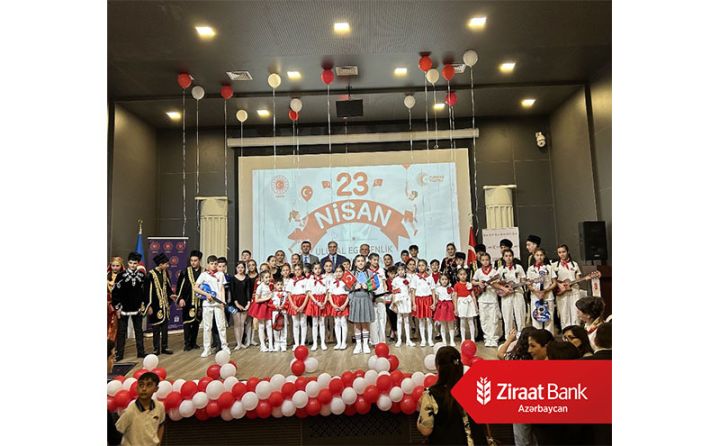
"Ziraat Bank Azərbaycan"dan 23 Aprel Milli Suverenlik və Uşaq Bayramı Günü münasibətilə təşkil olunan tədbirə dəstək!
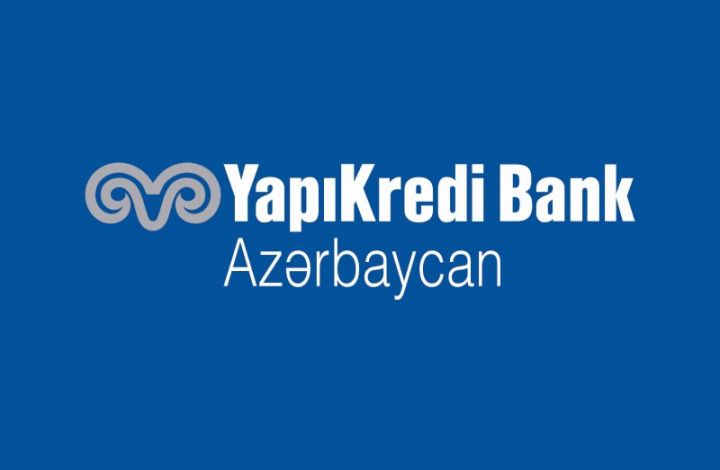
Yapı Kredi Bank Azərbaycanın dəstəyi ilə “23 aprel Milli Suverenlik və Uşaqlar Günü” münasibətilə tədbir keçirilib
SON XƏBƏRLƏR
- 2 saat əvvəl
-
2 saat əvvəl
Kapital Bank Azərbaycanın Bankçılıq Missiyasının ABŞ-yə ilk işgüzar səfərində iştirak etdi
- 2 saat əvvəl
-

-
3 saat əvvəl
Bakcell ilə innovasiya dövrü başlayır - Şirkət yeni brend kimliyini elan etdi
-
3 saat əvvəl
SOCAR ilə Dövlət Vergi Xidməti arasında memorandum imzalandı
- 3 saat əvvəl
-
3 saat əvvəl
Qarabağa avtobus reyslərinə may ayı üçün biletlər satışa çıxarılacaq
- 4 saat əvvəl
- 4 saat əvvəl
- 4 saat əvvəl
- 4 saat əvvəl
- 4 saat əvvəl
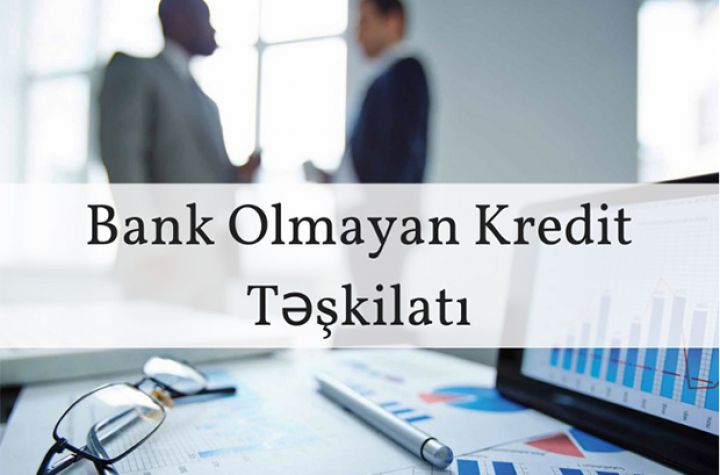
Azərbaycan BOKT-larının xalis mənfəəti 3 dəfə artıb

“IM LS6” Training-Test Drive Trekində!

SOCAR ilə Dövlət Vergi Xidməti arasında memorandum imzalandı

Qarabağa avtobus reyslərinə may ayı üçün biletlər satışa çıxarılacaq

Azərbaycana xaricdən pul köçürmələri 31% azalıb

MG MOTORS AZƏRBAYCAN-dan “XÜSUSİ QİYMƏT” kampaniyası
Ən çox oxunanlar

Azərbaycanın qiymətli kağızlar bazarı 2 dəfədən çox böyüyüb

2462 mənzilli 3 yaşayış kompleksi inşa olunur

"Ziraat Bank Azərbaycan"dan 23 Aprel Milli Suverenlik və Uşaq Bayramı Günü münasibətilə təşkil olunan tədbirə dəstək!

Ağdamda "Hilton" oteli tikilir
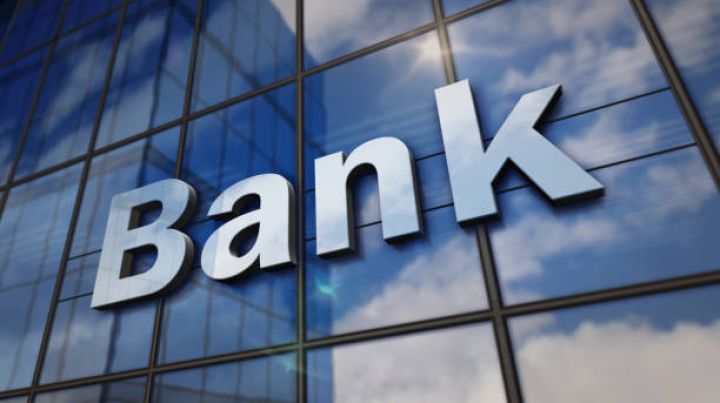
Bank sektoru üzrə yeni rəqəmlər açıqlandı

Bolt Azərbaycanın daha iki şəhərində!


